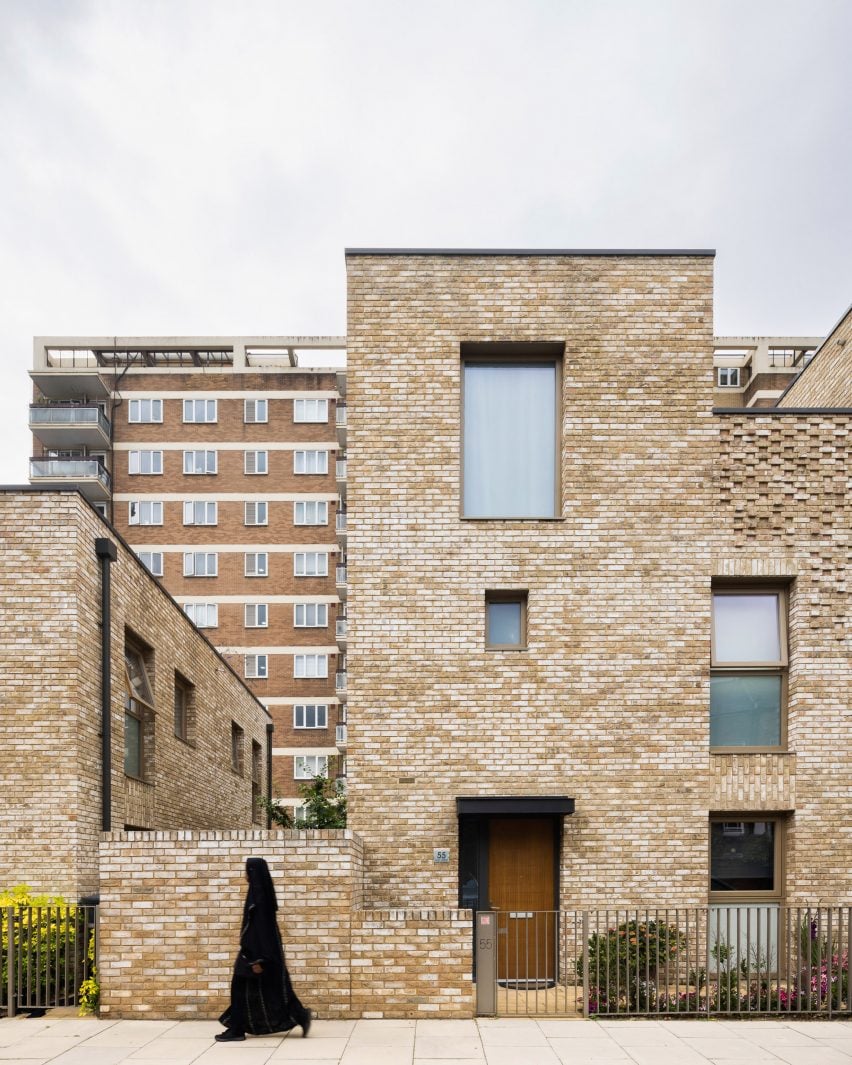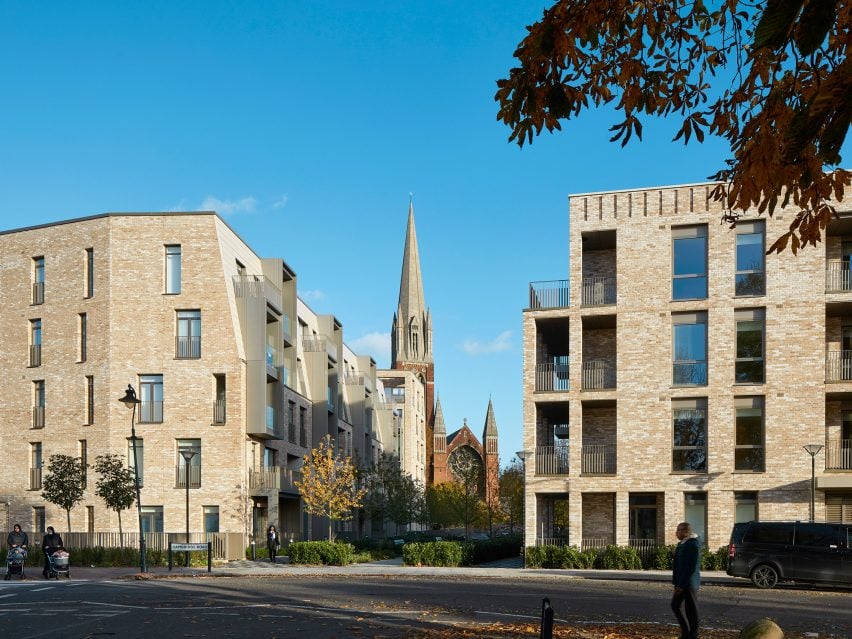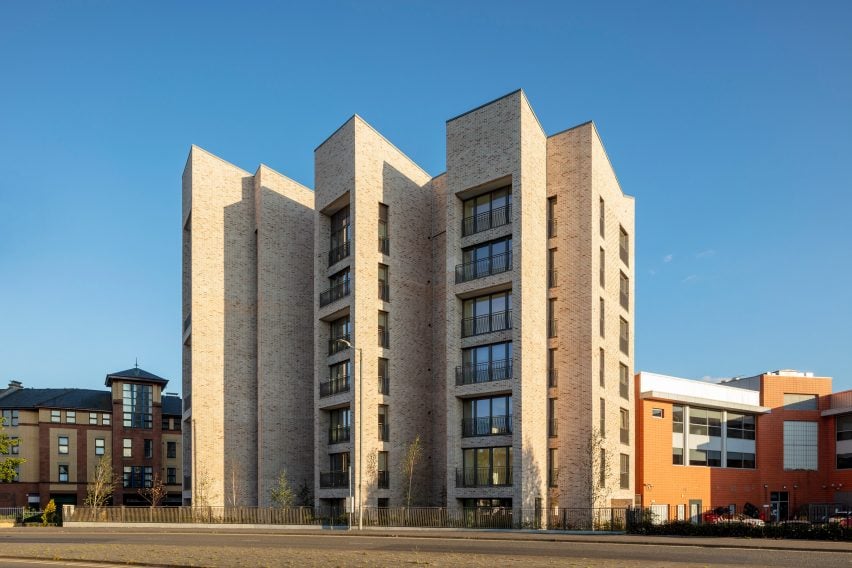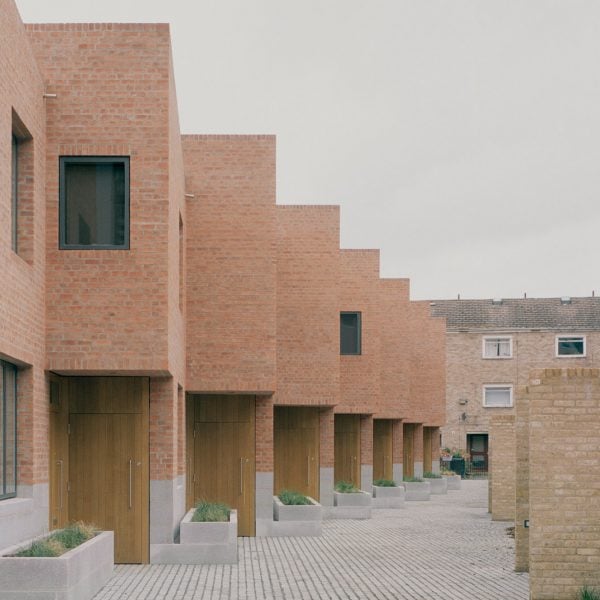The revamp of a 1960s estate and a stepped brick terrace on an infill site feature on the 2024 shortlist for the Royal Institute of British Architects’ Neave Brown Award for Housing.
A neighbourhood with 235 socially rented homes also features on the four-strong shortlist, alongside apartments tailored to older residents on a vacant brownfield site.
The Neave Brown Award for Housing is awarded annually by the Royal Institute of British Architects (RIBA) to celebrate the UK’s best new affordable homes.
It is given in memory of modernist architect Neave Brown, who was a pioneer of social housing.
Three of this year’s shortlisted projects are in London. These are Dover Court Estate by Pollard Thomas Edwards, Unity Place by Feilden Clegg Bradley Studios, Alison Brooks Architects, Gort Scott and RM_A Architect, and Chowdhury Walk by Al-Jawad Pike – a project also shortlisted for this year’s Stirling Prize.
The only project outside of London is North Gate Social Housing in Glasgow by Page\Park.
RIBA president Muyiwa Oki said the shortlist demonstrates that social housing should be seen as “a great opportunity” for architects.
“This year’s shortlist reaffirms that creating social housing should not be seen as a limitation to architects, but a great opportunity,” reflected Oki.
“Each brief has taken run-down or underused spaces and created outstanding projects that serve the needs of residents and the wider community,” he continued. “These schemes thoughtfully balance the environment, community, and quality, reinforcing the reality that when designing social housing, good design need not compromise on any of the three.”

The North Gate Social Housing in Glasgow occupies an empty brownfield site and comprises 31 flats. Designed by Page\Park primarily to suit the needs of older residents, the homes are all available for social rent.
Stirling Prize-shortlisted Chowdhury Walk by Al-Jawad Pike is a stepped cluster of two-storey homes, slotted on a plot between two existing terraces in Hackney that was previously occupied by cars.
Seven of the 11 houses in this development are available for social rent, with the remainder designed for private sale.
Dover Court Estate is a revamp of a 1960s housing complex in Islington, which has been carried out by Pollard Thomas Edwards to maintain its existing communities while improving their quality of life.
The studio has introduced 70 homes across the estate by replacing disused garages and also introduced a sports court and community centre.
Unity Place is the final project on the shortlist, designed by Feilden Clegg Bradley Studios, Alison Brooks Architects, Gort Scott and RM_A Architect in line with constraints relating to the neighbouring conservation areas.
It comprises 235 social homes in a range of sizes, which are all available for social rent. They exist alongside a series of community-centred public spaces, including a play area.

This year’s jury for the Neave Brown Award for Housing is made up of Allies and Morison co-founder Bob Allies and the daughter of the award’s namesake, Zoe Brown.
It is being chaired by Astrid Smitham, the founder of Apparata, which was awarded the prize last year for A House for Artists.
Smitham said the shortlist illustrates the value of “great partnerships between clients and architects”.
“At a time when the UK sets out to build 1.5 million new homes, this shortlist shows the importance of great partnerships between clients and architects in delivering housing of the very highest standard, that everyone deserves,” she explained.

“These projects show how the next wave of UK home building can help individuals and communities to thrive,” added Smitham.
The winner of the Neave Brown Award for Housing 2024 will be announced at the RIBA Stirling Prize ceremony on Wednesday 16 October 2024 at The Roundhouse in London.
This will coincide with the Stirling Prize ceremony, for which six buildings in England have been shortlisted. Just two are outside of London.

